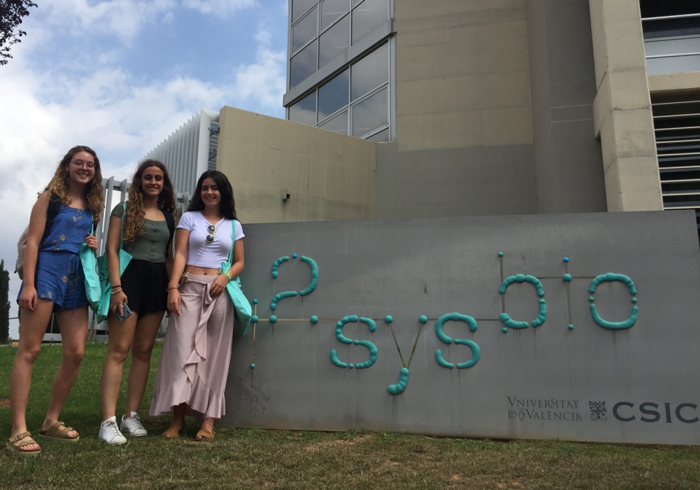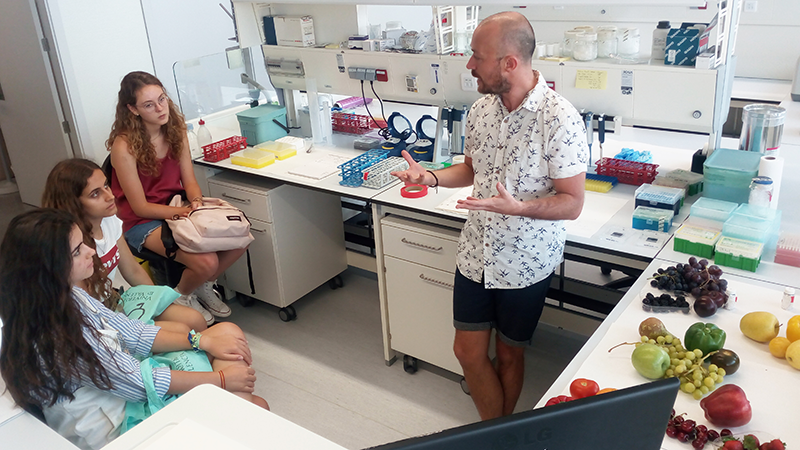
As part of the activities to disseminate the institute's research and stimulate scientific vocations, we have received the visit of three high school students from the Ciència ARA programme and a group of 30 secondary school students participating in the Summer Science Campus.
More than 50 students of high academic performance (ARA) have participated in the 9th edition of Ciència ARA, organized by the Delegation for Incorporation to the University of Valencia. Ciència ARA is a programme of scientific activities for students with high academic performance, aimed at enriching their curricula and developing their skills. In addition to the Institute of Integrative Systems Biology (I2SysBio), the programme also includes the Higher Technical School of Engineering, the Faculty of Pharmacy, the Faculty of Chemistry and the Central Support Service for Experimental Research (SCSIE).
For two days, Carla Heredia Margarit (IES María Moliner, Port de Sagunt), Alejandra Menezo López (Domus, Godella) and Isabel Vernia Garcia (La Encarnación, Sueca) visited several I2SysBio laboratories, under the coordination of Emilia Matallana, responsible for Ciència ARA at I2SysBio. After being received by José Luis García, director of I2SysBio, which has introduced them into the world of systems biology, the students have immersed themselves in research as diverse as bioinformatics and "big data" in life sciences, the study of symbiotic microbiota of insects, the biology of pathogenic viruses, the production of aromas and colours by plants or the bioprospection of bacteria in extreme environments. They have also visited Biopolis, a biotechnology company associated with I2SysBio. According to the students, who have a very brilliant record and are thinking of starting a scientific career in the fields of biochemistry, biotechnology or medicine, the experience has been very motivating for them and has allowed them to get to know what the day-to-day life of a university research institute is like.
On the other hand, a group of 30 4th year ESO students visited the I2SysBio within the Summer Scientific Campus (CCV) programme. This program is organized by the Ministry of Education and Vocational Training and the Spanish Foundation for Science and Technology (FECYT) under the Ministry of Science, Innovation and Universities, and is aimed at young people from 4th year of ESO and 1st year of Bachillerato throughout Spain. The aim is to strengthen the taste for science and encourage scientific vocations. The VLC/CAMPUS campus of international excellence, made up of the University of Valencia, the Polytechnic University of Valencia and the Higher Council for Scientific Research (CSIC), is part of a group of 13 campuses that host a total of 1,552 young people.
The students were received by the director of I2SysBio who stimulated a discussion with them about what it means to be a researcher, what opportunities there are to do science in our country and the value of curiosity as the engine of all research. After introducing the main lines of research in systems biology, the students visited the institute's Data Processing Centre, and were received by researchers from the Industrial Yeast and Biotechnology and Synthetic Biology groups who explained their projects and answered the students' questions.












